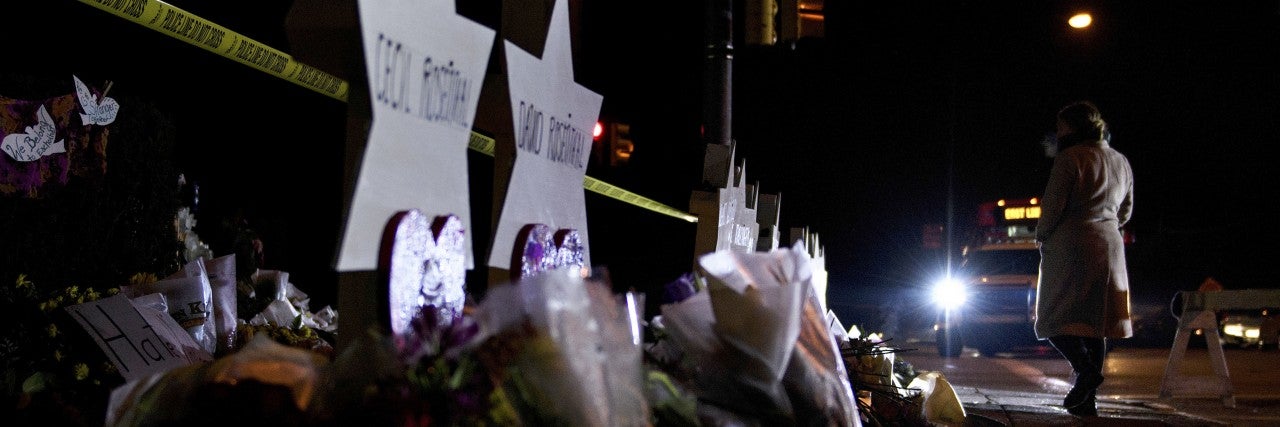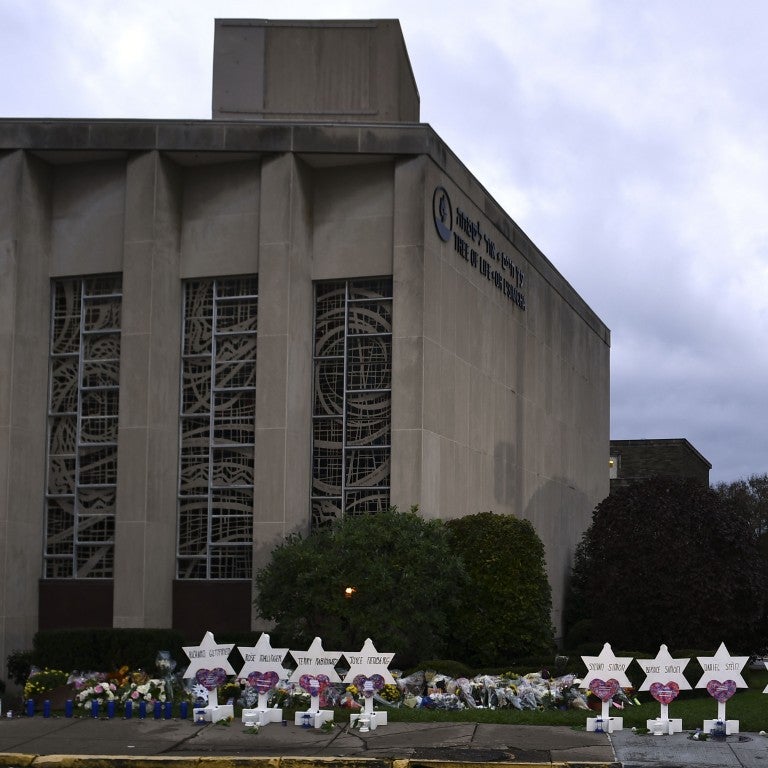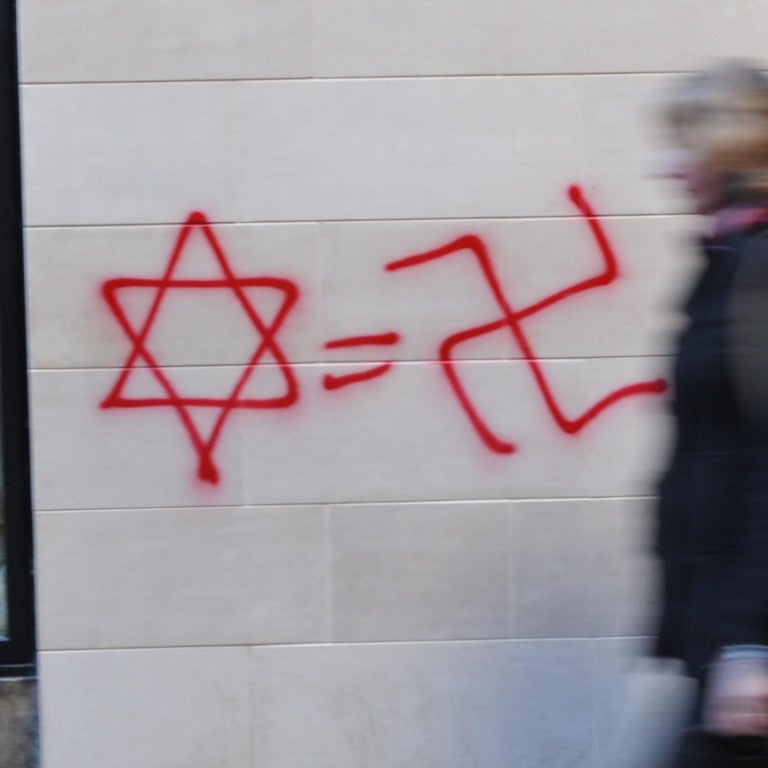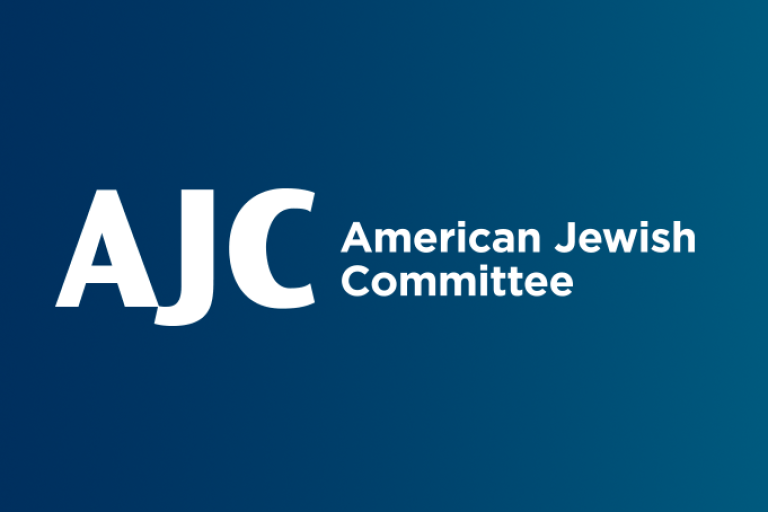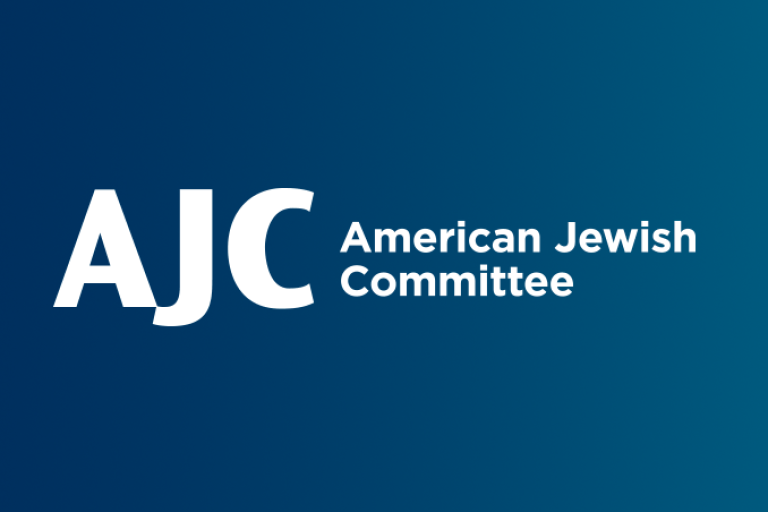October 23, 2019
One year ago, some may have questioned the need for the AJC 2019 Survey of American Jews on Antisemitism in America.
It is noteworthy that while two extensive surveys of European Jews on the subject of antisemitism have been conducted within the past decade alone, no such surveys have been conducted among American Jews for at least half a century. The devastating events of the past year, however, have served as a wakeup call. As Jewish worshipers are shot dead in Pittsburgh and Poway and anti-Jewish sentiment surges on the far right and the hard left, the time has come for an in-depth study of antisemitism in America. While the Federal Bureau of Investigation regularly tracks and reports on actual antisemitic incidents in the United States, this survey represents the largest and most comprehensive examination ever of American Jews’ experiences and perceptions of antisemitism.
In conducting this landmark survey, we drew inspiration from two similar surveys of European Jews conducted by the European Union Agency for Fundamental Rights (FRA). The FRA surveys, conducted in 2012 and 2018, sought to assess how Jews in several major European countries felt about antisemitism in their countries of residence, how they had experienced it, and what steps they had taken in response. In crafting our questionnaire, we adapted some of the FRA survey questions, integrated questions from AJC’s annual surveys of American Jewish opinion, and added some new questions, working closely with our partners at SSRS. Responses were collected by phone in September and October, including around (though not on) the Jewish High Holy Days.
The findings are striking and profoundly troubling.
Antisemitism in America
American Jews are deeply concerned about antisemitism in America and they believe it is getting worse.
Nearly nine out of every ten American Jews (88%) believe antisemitism is a problem in America today and over eight in ten (84%) say it has increased over the past five years, including a plurality—43%—who say it has increased a lot. Concern about antisemitism cuts across differences of age, party affiliation, and religious identification. More than nine in ten (93%) Democrats, 87% of independents, and three quarters (75%) of Republicans say antisemitism is a problem in America, as do 80% or more of those of all religious affiliations and 86% or more of those of all age groups.
More than four out of every ten American Jews (42%) say the status of Jews in America is less secure today than it was a year ago, while 55% say the situation is about the same. Over a third of respondents (36%) said the climate on college campuses is more hostile to pro-Israel students than it was a year ago, while 41% said it was roughly the same.
More than a third of all American Jews (35%) say they have personally been the targets of antisemitism over the past five years: nearly a quarter (23%) say they’ve been targeted by antisemitic remarks in person, by mail, or by phone; a fifth (20%) say they’ve been targeted by antisemitic remarks online, and 2% say they’ve been physically attacked for being Jewish. Young people are significantly more likely than those of any other age group to have been the targets of antisemitism in any form, with nearly half—45%—of respondents aged 18-29 saying they have targeted by antisemitic remarks either online or through social media (30%) or in person, by mail, or by phone (28%) or have been physically attacked (1%). Those who affiliate with a Jewish religious denomination are more likely to have been the targets of antisemitism than are Jews who identify as secular.
Nearly a fifth of respondents—19%—have either experienced antisemitism on a college campus themselves over the past five years or know someone who has. Perhaps unsurprisingly, young people—those most likely to be college students themselves—are most likely to have experienced antisemitism on campus or to know someone who has: more than a third (35%) of respondents aged 18-29 answered in the affirmative, with one in four (25%) saying they know someone who has experienced antisemitism on a college campus and an additional 10% saying both they and someone they know have experienced it.
Responses
Strikingly, nearly a third of American Jews (31%) say they have avoided publicly wearing, carrying, or displaying things that might help people identify them as Jewish, while a quarter (25%) say they avoid certain places, events, or situations out of concern for their safety or comfort as Jews at least some of the time. Young people are most likely to have concealed their Jewishness in public, with nearly four in ten (38%) of those aged 18-29 saying they have done so, more than any other age group. Those who have been the targets of antisemitism are more likely than others to avoid certain situations (34%) or publicly displaying their Jewish identity (41%) than those who have not.
A third of American Jews (33%) say Jewish institutions with which they are affiliated have been targeted by antisemitic graffiti (22%), threats (17%), and/or physical attacks (8%). Seven in ten American Jews (71%) say Jewish institutions with which they are affiliated have either hired security guards (57%), had police posted on site or outside (52%), and/or have trained or informed members on how to respond to an attack (39%).
Asked to assess law enforcement’s response to antisemitism, 81% of American Jews characterize it as either very or somewhat effective, compared to only 15% who said the response is not too effective or not effective at all. American Jews are somewhat less charitable toward the President: 72% disapproved of his handling of the threat of antisemitism in America, compared to only 24% who expressed approval. Respondents’ assessment of President Trump’s response to antisemitism varied vastly by their political affiliation, with 84% of Republicans expressing approval of the President’s response, compared to only 4% of Democrats. Orthodox Jews overwhelmingly approve of the President’s response to antisemitism, while those of all other religious affiliations strongly disapprove.
Antisemitism and Israel
American Jews view efforts and statements against the State of Israel as being tinged with antisemitism.
Of respondents who said they were familiar with the Boycott, Divestment, and Sanctions (BDS) Movement targeting Israel, only 14% said it isn’t antisemitic – over a third (35%) characterized the movement as mostly antisemitic, while 47% said it is not mostly antisemitic but has antisemitic supporters. The more familiar respondents were with the BDS Movement, the more likely they were to consider it to be antisemitic: of those who said they were “very familiar” with the movement, a majority—52%--said it is mostly antisemitic, compared to only 26% of those who are less familiar with it. Young people were the most likely to say the BDS Movement either is mostly antisemitic or has antisemitic supporters, with 88% of those familiar with the movement expressing those views compared to only 11% who said it is not antisemitic.
American Jews overwhelmingly believe that anti-Zionism—that is, the belief that Israel should not exist—is a form of antisemitism: 84% of respondents said the statement “Israel has no right to exist” is antisemitic. The belief that rejecting Israel’s existence is antisemitic cuts across differences of party affiliation, age, and religious identity: 85% of Democrats, 87% of Republicans, and 82% of independents agreed that denying Israel’s right to exist is antisemitic, as did 78% of those aged 18-29, 82% of those aged 30-49, 92% of those aged 50-64, and 86% of those aged 65 or older, and 80% of those who identify as Haredi, 87% of those who identify as Modern Orthodox, 90% of those who identify as Conservative or Reform, and 79% of those who identify as secular Jews. 80% of respondents said the statement “The U.S. government only supports Israel because of the Jewish money” is antisemitic and 73% said so about the statement “American Jews are more loyal to Israel than to America.”
Responsibility
Nearly nine of ten American Jews (89%) believe the extreme political right represents a threat to Jews in the United States, while 85% say the same of extremism in the name of Islam and nearly two thirds—64%—say so about the extreme political left. While Democrats are more likely to view the extreme right as a threat to Jews and Republicans are more likely to say the same of the extreme left, majorities of both Democrats and Republicans view the extreme right, the extreme left, and extremism in the name of Islam as antisemitic threats. The same is true of those of all age groups and religious denominations.
American Jews assign greater responsibility to the Republican Party for the current level of antisemitism in the United States than they do to the Democratic Party. When asked to assign responsibility on a scale of 1 (no responsibility) to 10 (total responsibility), respondents assigned the Republican Party an average score of 6.2, while the Democratic Party scored a 3.6. While those who identify as Republican or Democrat tend to assign greater responsibility to the opposite party, American Jews also view their own parties as having responsibility for the current level of antisemitism in America, with each rating their own party with similar scores of 2.7.
Conclusions
American Jews view antisemitism as a significant problem in America—and one that is getting worse. While age, political affiliation, and religious identification accounted for some variation in responses, there is broad agreement that the far right, the hard left, and extremism in the name of Islam threaten American Jews. Young people are particularly vulnerable, with nearly half reporting that they have been the targets of antisemitism over the past five years. Nearly a third of American Jews have taken steps to conceal their Jewishness in public and a quarter have avoided certain places or situations out of concern for their safety or comfort as Jews. While American Jews largely approve of law enforcement’s response to antisemitism in America, they largely disapprove of the President’s response. American Jews see a strong correlation between anti-Israel sentiment and antisemitism, with more than eight in ten stating that denying Israel’s right to exist is a form of antisemitism.
Policymakers should bear these findings in mind as they seek to develop solutions to the current antisemitism crisis, but they should also consider them when weighing their rhetoric on this charged subject. American Jews know antisemitism when they see it, and they see it on both extremes of the political map, among extremists claiming to act in the name of Islam, and in movements that target the State of Israel. To ignore any of these sources of antisemitism is to risk perpetuating the very problem well-meaning decision makers seek to address. While it may be easier to identify the problem among those of other political persuasions than it is to confront it within one’s own camp, a serious effort to address this national challenge will require painful self-examination and joint action on the part of government officials from both sides of the aisle, along with Jewish community representatives, civil society leaders, and all people of conscience. Now is the time for principled leadership and introspection, rather than finger-pointing and point-scoring. This is a fight America—and American Jews—cannot afford to lose.
